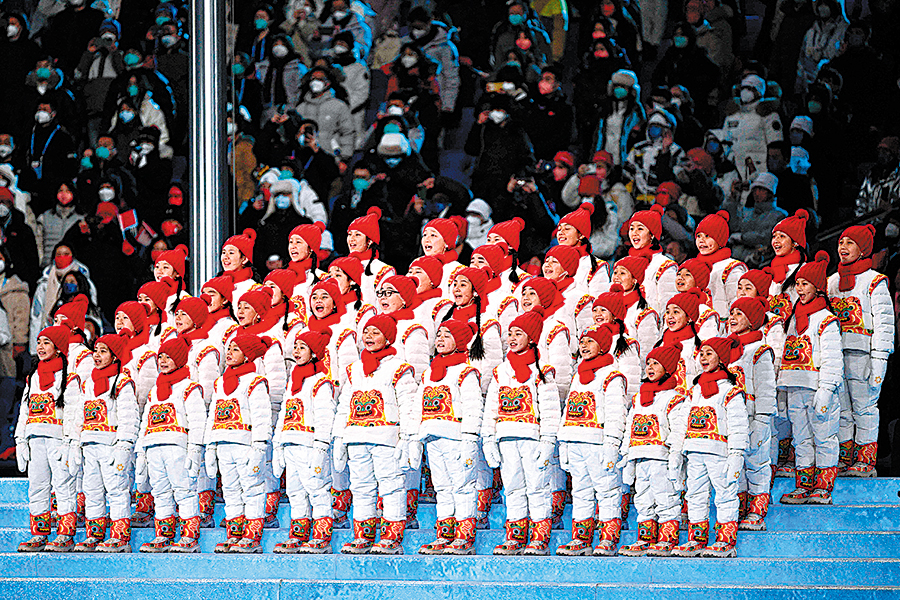Formerly impoverished children find their voice on big stage


A group of Chinese children singing the Olympic anthem in Greek during the opening and closing ceremony of the 2022 Beijing Winter Olympics stunned a global audience with their pure voices.
In the nearly two and a half minutes of the anthem, their unaccompanied singing resounded through the National Stadium.
The 44 children came from Fuping, a formerly impoverished county in Hebei province. They began to learn the song in October, starting with the Greek lyrics. Deng Xiaolan, a volunteer music teacher in the county and founder of a local choir, said the voices of children in the mountains are like sounds from heaven and their love of singing is touching.
Zhang Yimou, head director of the opening ceremony, explained the children's part at a news conference last month.
"Fuping was a national-level impoverished county," he said. "Led by the Communist Party of China, China has won the battle of poverty reduction on schedule. The once poverty-stricken mountain area has a new look and the children stood on the Olympic stage, demonstrating the Olympic motto with unadorned singing."
The county, home to 108,100 people, shook off poverty in February 2020. By the end of October last year, the per capita net income of the 87,000 villagers lifted out of poverty reached 10,336 yuan ($1,635), up 16.9 percent year-on-year, according to the rural vitalization bureau in Fuping.
The county has been developing industries including edible mushrooms, forestry and fruit growing, and cottage crafts, to increase income.
Zhang Guizhong used to earn 2,000 yuan a year by growing jujube trees in the county. Due to low incomes and unstable production, many villagers gave up jujube growing and left Fuping to find employment elsewhere.
In 2014, Zhang applied for the use of 13.3 hectares of jujube orchards with a 100,000 yuan loan from the local government as part of its financial support for poverty alleviation projects. He improved the jujube variety with the guidance of forestry experts and started to manage the orchards scientifically by introducing new planting methods and increasing the fertility of the soil.
The improved jujubes are organic, environmentally friendly and healthy, Zhang said.
A year later, Zhang climbed out of poverty after building a family farm and his own brand. He now runs 33 hectares of jujube orchards that return an annual income of 200,000 yuan.
Nine households are involved in their management.
"The farmers can increase their incomes by 3,000 yuan by harvesting jujubes," Zhang said.
The county has established three incubators for entrepreneurship, promoting the employment of 655 people, the rural vitalization bureau said.
Gu Tengfei is among the first batch of young returnees to start up businesses in their hometown. The 31-year-old turned some wasteland into a beer garden with partners in the village, creating jobs for 20 villagers and making a profit of 100,000 yuan a year. He has also sold agricultural products for villagers through livestreaming and bought medical insurance for fellow villagers with the profits.
Liu Kai, the headmaster of a primary school in Fuping who accompanied the children as they practiced for the chorus, said when members of the directorial team visited the county to seek performers, they said children in the mountains needed a stage to express themselves after the village shook off poverty.
"Rural children are quite introverted," Liu told Xinhua News Agency. "They changed a lot after joining the choir and all felt proud of appearing in the ceremony."
- Survivor of Japan's 'comfort women' system dies
- 19 foreigners among China's first officially certified hotpot chefs
- China approves new lunar sample research applications from institutions
- Fishing, Hunting festival opens at Chagan Lake in Jilin
- A glimpse of Xi's global insights through maxims quoted in 2024
- China's 'Ice City' cracks down on ticket scalping in winter tourism




































